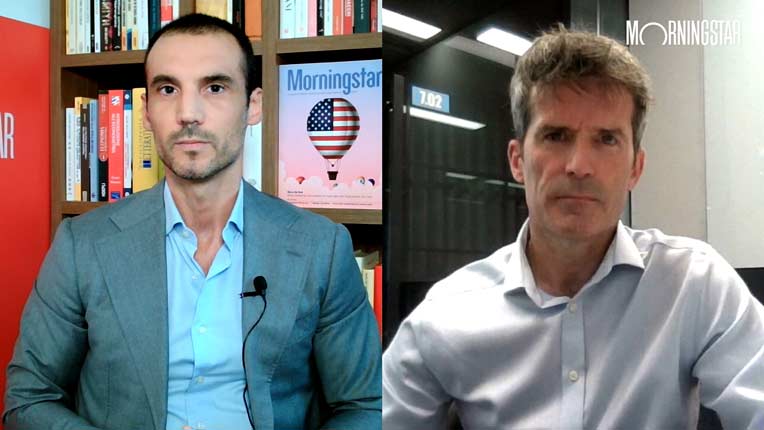
The top-performing emerging market funds for sale across Europe all feature some common stock picks.
10 Top Stock Picks of the Best EM-Fund Managers
These are the most popular stocks chosen by top fund managers, according to their most recent portfolio updates. All Morningstar data included in this article is as of September 12th 2024 and all 18 funds screened have a Morningstar Medalist Rating of Gold.
This list ranges from stocks that are undervalued, fairly valued or overvalued today.
• Taiwan Semiconductor Manufacturing (2330)
• Tencent Holdings (00700)
• Samsung Electronics (005930)
• SK Hynix (000660)
• HDFC Bank (HDFCBANK)
• MercadoLibre (MELI)
• Tata Consultancy Services (TCS)
• Antofagasta (ANTO)
• Phoenix Mills (503100)
• Reliance Industries (RELIANCE)
Here's what you need to know about each stock, along with some commentary from the Morningstar analyst that covers it.
Taiwan Semiconductor Manufacturing
• Number of top managers who own the stock: 14
• Price/Fair Value: 0,65
• Morningstar Economic Moat Rating: Wide
• Morningstar Uncertainty Rating: Medium
• Morningstar Fair Value Estimate: 1380.00 TWD
• Sector: Technology
• Morningstar Rating: ★★★★★
Taiwan Semiconductor Manufacturing is the world’s largest dedicated contract chip manufacturer, or foundry with over 60% market share. It makes integrated circuits for customers based on their proprietary IC designs. The firm has long benefited from semiconductor firms around the globe transitioning from integrated device manufacturers to fabless designers. TSMC, like all foundries, assumes the costs and capital expenditures of running factories amid a highly cyclical market for its customers. Such cyclicality stems from the fact that foundries tend to add excessive capacity during times of burgeoning demand, which can result in underutilization during downturns that hampers profitability.
We note two long-term growth factors for TSMC. First, the consolidation of semiconductor firms is expected to create demand for integrated systems made with the most advanced nodes. Second, organic growth of artificial intelligence, Internet of Things, and high-performance computing applications may last for decades. AI and HPC play a central role in quickly processing human and machine inputs to solve complex problems like autonomous driving and language processing, which accentuated the need for more energy-efficient chips. Cheaper semiconductors have made integrating sensors, controllers, and motors to improve home, office, and factory efficiency possible.
We believe TSMC’s wide moat stems from its cost advantage and intangible assets, which are realized from its leading position in process technology, or nodes.
Read Morningstar's full report on Taiwan Semiconductor Manufacturing
Tencent Holdings
• Number of top managers who own the stock: 10
• Price/Fair Value: 0,53
• Morningstar Economic Moat Rating: Wide
• Morningstar Uncertainty Rating: High
• Morningstar Fair Value Estimate: 704.00 HKD
• Sector: Communication Services
• Morningstar Rating: ★★★★★
Over the past decade, Tencent has capitalized on the industry shift toward mobile gaming. The firm owns some of the world's most popular titles, like Honor of Kings and PUBG Mobile. To date, games remain Tencent's primary monetization model—as we estimate more than 40% of the group's operating income comes from this segment. Tencent should continue to leverage its unrivaled access to user data and financial capital to create innovative, high-quality, and long-cycle games with a mobile-first approach.
Outside of games, other key businesses under the Tencent empire include WeChat, QQ, WePay, music streaming, on-demand cloud, and a host of other ventures. We see a tremendous amount of untapped value in WeChat as it continues to increase monetization through advertising and acts as a major gateway for other internet services (payment, delivery, insurance, and so on) looking to access the 1.2 billion-plus WeChat users.
Tencent's wide moat is primarily based on network effects around its massive user base.
Read Morningstar's full report on Tencent Holdings
Samsung Electronics
• Number of top managers who own the stock: 9
• Price/Fair Value: 0,72
• Morningstar Economic Moat Rating: Narrow
• Morningstar Uncertainty Rating: Medium
• Morningstar Fair Value Estimate: 90.000
• Sector: Technology
• Morningstar Rating: ★★★★
Samsung Electronics has been a fantastic growth story as it has established itself as the clear global leader in the smartphone space during the past decade, following its success in becoming the global top manufacturer of flat panel TV in the 2000s. However, we do not identify an economic moat from its consumer electronics business, as these products are mature and difficult to differentiate, and are exposed to the tough competition from Chinese manufacturers. Unlike its competitor Apple, Samsung does not have an ecosystem that prevents users from switching to other brands, in our view.
Meanwhile, we believe that Samsung’s semiconductor business will remain the profit driver in the longer term, driven by the robust growth of data traffic. Samsung led the global semiconductor industry in terms of revenue in 2017, knocking Intel from the top spot for the first time since 1992. According to Omdia, Samsung became the top supplier of DRAM in the mid-90s, and now has a 42% market share in 2022. The company is also the global top supplier of NAND with 34% market share in 2022. Demand growth for memory has been supported by the diffusion of digital devices, such as note PCs and smartphones, over the past two decades. We believe the new telecom standards will not only enable richer content on existing devices, but will also ignite digitalization in non-IT industries, which will continue to drive the growth in data traffic. We believe the big data trend will accelerate from artificial intelligence demand.
Owing to technological obstacles, the costs necessary to achieve higher capacity per memory are becoming much higher than the past, which has forced smaller players to withdraw from the market. We believe Samsung will maintain its cost advantage, which stems from a better product mix, underpinned by technical advantages and increased research and development expenses.
We assign a narrow moat to Samsung Electronics, because we believe Samsung’s leading position in the memory market constitutes an economic moat, despite the commodity and high cyclical nature of the business.
Read Morningstar's full report on Samsung Electronics
SK Hynix
• Number of top managers who own the stock: 10
• Price/Fair Value: 0,95
• Morningstar Economic Moat Rating: None
• Morningstar Uncertainty Rating: High
• Morningstar Fair Value Estimate: 165.000 KRW
• Sector: Technology
• Morningstar Rating: ★★★
SK Hynix is the second-largest semiconductor manufacturer in South Korea following Samsung Electronics. The company’s major business is memory and storage used in various electronic devices; smartphones, servers, and PCs are major applications.
Because of its high cyclicality and commodity nature, the memory business has been extremely competitive. Dynamic random-access memory, or DRAM, provides high-speed data storage and retrieval necessary for processors to function. NAND flash products are used as storage as they retain data when the power is off. Owing to growing data traffic, the average size of DRAM and NAND per device is increasing every year, and thus, memory suppliers focus on circuit microfabrication, which contributes to improving the memory density and thus cuts down the production cost per data. However, because of technical difficulties, DRAM scaling is slowing, and as a result, capital expenditure necessary to achieve the bit growth is becoming higher, forcing smaller players out of the market and driving consolidation of the industry.
SK Hynix is the second-largest DRAM supplier globally, with approximately 28% share, and the fifth-largest NAND supplier globally, with approximately 19% share. We estimate that 65%-70% of its revenue and most of its profit are from DRAM. While we acknowledge a substantial difference between industry leader Samsung Electronics and second-tier companies such as SK Hynix and Micron, we believe that the technical obstacles and larger research and development expense will function as an entry barrier to other players coming into the market.
We assign a no-moat rating to SK Hynix as we do not believe the company can carve out a competitive advantage in memory semiconductors, especially when compared with larger rivals such as Samsung.
Read Morningstar's full report on SK Hynix
HDFC Bank
• Number of top managers who own the stock: 6
• Quantitative Morningstar Economic Moat Rating: Narrow
• Quantitative Morningstar Uncertainty Rating: Very High
• Quantitative Fair Value Estimate:1864,55 INR
• Sector: Financial Services
• Quantitative Morningstar Rating: ★★★
The stock is not covered by Morningstar Equity Research. Morningstar Quantitative ratings for equities are generated using an algorithm that compares companies that are not under analyst coverage to peer companies that do receive analyst-driven ratings.
HDFC Bank is an Indian banking and financial services company, headquartered in Mumbai. It is India's largest private sector bank by assets and currently the world's twelfth-largest bank by market capitalization.
MercadoLibre
• Number of top managers who own the stock: 6
• Price/Fair Value: 1,24
• Morningstar Economic Moat Rating: Wide
• Morningstar Uncertainty Rating: High
• Morningstar Fair Value Estimate: 1650.00 USD
• Sector: Consumer Cyclical
• Morningstar Rating: ★★
MercadoLibre has positioned itself as a one-stop solution for Latin American commerce. In recent years, it has developed a comprehensive ecosystem of mutually reinforcing services, with a core marketplace supported by a payments and lending arm (Mercado Pago and Mercado Credito), a best-in-breed shipping solution (Mercado Envios), and an increasingly robust advertising platform (Mercado Ads). With effectively all the firm's platform gross merchandise volume funneled through proprietary payment rails and shipped through Envios, the marketplace operator has effectively addressed two of the biggest pain points in e-commerce.
We view the firm's main challenges moving forward as consistent with those of the past: increasing fulfillment penetration, generating operating leverage in shipping and payments solutions, and continuing to improve the user experience on the platform, driving barriers to success higher for competitors.
In our view, MercadoLibre has built a wide economic moat around its Latin American e-commerce ecosystem (implying excess returns over 20 years), benefiting from a quickly growing network of buyers and sellers on its platform, privileged access to consumer transaction data, and switching costs as sellers and buyers increasingly depend on the firm’s broadening suite of service
Read Morningstar's full report on MercadoLibre
Tata Consultancy Services
• Number of top managers who own the stock: 4
• Price/Fair Value: 1,47
• Morningstar Economic Moat Rating: Wide
• Morningstar Uncertainty Rating: Medium
• Morningstar Fair Value Estimate: 3050.00 INR
• Sector: Technology
• Morningstar Rating: ★
Tata Consultancy Services is a leading global IT services provider, providing the typical menu of offerings, from software implementation to digital transformation consulting to servicing business operations teams. Unlike most of its peers, which earn a narrow moat, in our view, we think Tata merits a wide economic moat, as we believe the company benefits from switching costs and intangible assets, similar to other peers in the industry, as well as cost advantage. While the company is undergoing headwinds like an industrywide labor shortage, we think that the company’s stable moat trend will stay secure. Meanwhile, forays into the higher-value realm of industrials engineering will help ensure Tata is an above-average beneficiary of substantial growth trends within the IT services industry at large.
While in many regards there's an uncanny resemblance between Tata and its India IT services' competitors - Wipro and Infosys - such as in its offerings, offshore leverage mix or attrition rates - Tata stands out in regards to its scale. The company’s revenue is considerably greater than Infosys and Wipro, and this has its benefits.
TCS isn’t unusual for being an IT services provider boasting switching costs and intangible assets. These are founded upon the intense disruption customers would experience when changing their IT services provider as well as TCS' specialized knowledge of the industry verticals it caters to and the distinct knowledge of its customers' complex web of IT piping. But besides these two moat sources, we think that TCS benefits more from cost advantage than its Indian IT servicing peers, due to its scale and its ability to spread fixed costs across its large customer base--adding to the cost advantage TCS has due to its labor arbitrage model. Altogether, this scale that pushes TCS’ cost advantage past its peers will only help maintain TCS’ competitive edge, in our view, as more enterprises see the value of vendor consolidation and TCS’ scale further improves the company’s intangible assets.
Read Morningstar's full report on Tata Consultancy Services
Antofagasta
• Number of top managers who own the stock: 4
• Quantitative Morningstar Economic Moat Rating: None
• Quantitative Morningstar Uncertainty Rating: High
• Quantitative Fair Value Estimate: 20.52 GBX
• Sector: Basic Materials
• Quantitative Morningstar Rating: ★★★★
The stock is not covered by Morningstar Equity Research. Morningstar Quantitative ratings for equities are generated using an algorithm that compares companies that are not under analyst coverage to peer companies that do receive analyst-driven ratings.
Antofagasta is a London-based Chilean mining company. It is one of the most important conglomerates of Chile with equity participation in Antofagasta Minerals, the railroad from Antofagasta to Bolivia, Twin Metals in Minnesota and other exploration joint ventures in different parts from the world. Antofagasta is listed on the London Stock Exchange and is a included in the FTSE 100 Index.
Phoenix Mills
• Number of top managers who own the stock: 4
• Quantitative Morningstar Economic Moat Rating: Narrow
• Quantitative Morningstar Uncertainty Rating: High
• Quantitative Fair Value Estimate:3231.25 INR
• Sector: Real Estate
• Quantitative Morningstar Rating: ★★★
The stock is not covered by Morningstar Equity Research. Morningstar Quantitative ratings for equities are generated using an algorithm that compares companies that are not under analyst coverage to peer companies that do receive analyst-driven ratings.
Phoenix Mills is a leading retail mall developer and operator in India with approximately 0.64 million square meter of retail space spread across 9 malls in 6 gateway cities of India.
Reliance Industries
• Number of best managers who own the stock: 6
• Quantitative Morningstar Economic Moat Rating: None
• Quantitative Morningstar Uncertainty Rating: High
• Quantitative Fair Value Estimate: 2984.46 INR
• Sector: Energy
• Quantitative Morningstar Rating: ★★★
The stock is not covered by Morningstar Equity Research. Morningstar Quantitative ratings for equities are generated using an algorithm that compares companies that are not under analyst coverage to peer companies that do receive analyst-driven ratings.
Reliance Industries is an Indian multinational conglomerate headquartered in Mumbai. Its businesses include energy, petrochemicals, natural gas, retail, entertainment, telecommunications, mass media, and textiles. Reliance is the largest public company in India by market capitalisation and revenue.
Methodology - Filtering Out the Hottest EM Stocks
To create our top 10 we screened Morningstar Direct data for actively-managed open-ended funds for sale across Europe in Morningstar's Global Emerging Markets Equity and Global Emerging Markets Small/Mid-Cap Equity categories. We then filtered this list to include only funds with a Morningstar Medalist Rating of Gold.
Eighteen separate fund portfolios passed our screening. We then aggregated the portfolios to find the 10 most-popular stocks (as determined by portfolio concentration and number of funds that own the stock) across all fund portfolios.
































